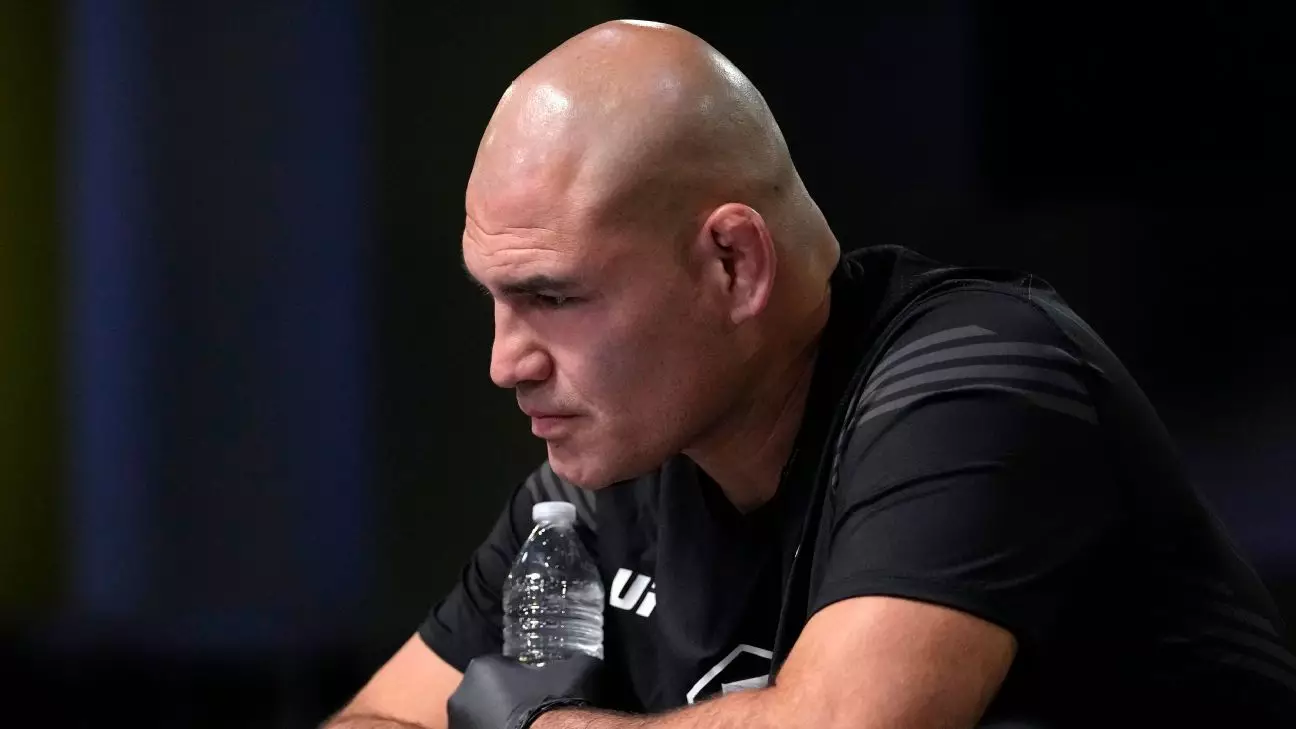Once a revered figure in the world of mixed martial arts, Cain Velasquez, the former UFC heavyweight champion, has seen his life take a dramatic turn. Sentenced to five years in prison for a shooting incident stemming from his efforts to protect his son, Velasquez embodies the dire consequences of taking the law into one’s own hands. What began as a father’s desperate quest for justice has ended in a sobering reminder that violence is seldom the answer, regardless of one’s motives.
The Incident That Shook a Community
In February 2022, Velasquez engaged in a harrowing 11-mile car chase, armed with a .40-caliber handgun. He aimed to confront Harry Goularte, the man accused of molesting his four-year-old son. An incident that many may empathize with swiftly escalated into a scene filled with chaos and tragedy. While Velasquez’s intentions might have stemmed from a place of parental instinct, the repercussions were dire. He missed his target but struck Goularte’s stepfather, Paul Bender, whom he injured during the frenzy.
The reality that emerged from this chaos led to Velasquez pleading no contest to felony attempted murder, assault, and weapons charges. His situation represents a broader dilemma faced by many in society: when the legal system seemingly fails to provide justice, does one have the right to take matters into their own hands? Yet justice, as Velasquez’s case shows, can often backfire spectacularly.
A Moment of Reflection
In a revealing podcast interview with his former teammate Kyle Kingsbury, Velasquez took responsibility for his dangerous actions. He publicly acknowledged that retaliatory violence is ultimately counterproductive, stating, “We cannot put the law in our own hands.” This moment of clarity highlights a shift in his understanding of justice and accountability. It’s a powerful reminder that while emotions can drive individuals toward irrational actions, the need for self-reflection and remorse often comes too late.
The weight of confinement has seemingly prompted Velasquez to reevaluate his choices. His willingness to confront his mistakes publicly adds a complex layer to a narrative that could easily have been simplified into a tale of a father seeking revenge. It demonstrates an evolution from a powerful fighter who relied on physicality to someone who grapples with the moral implications of their actions.
Implications for Society
The tale of Cain Velasquez resonates beyond just the realm of sports and celebrity; it’s a cautionary tale for society at large. It prompts discussions about parental rights, the responsible use of violence, and the limitations of the law. As much as emotional narratives can elicit sympathy, they can also lead to tragic outcomes that affect numerous lives. Velasquez’s case casts a spotlight on the often-gray areas when it comes to justice and personal responsibility.
In a world where many feel disenfranchised by the justice system, we must ponder: How can society ensure that champions of justice don’t become victims of their own misguided actions? Velasquez’s journey encourages a more profound dialogue regarding the consequences of vigilante impulses, illuminating paths for better support systems for individuals facing similar emotional crises.

